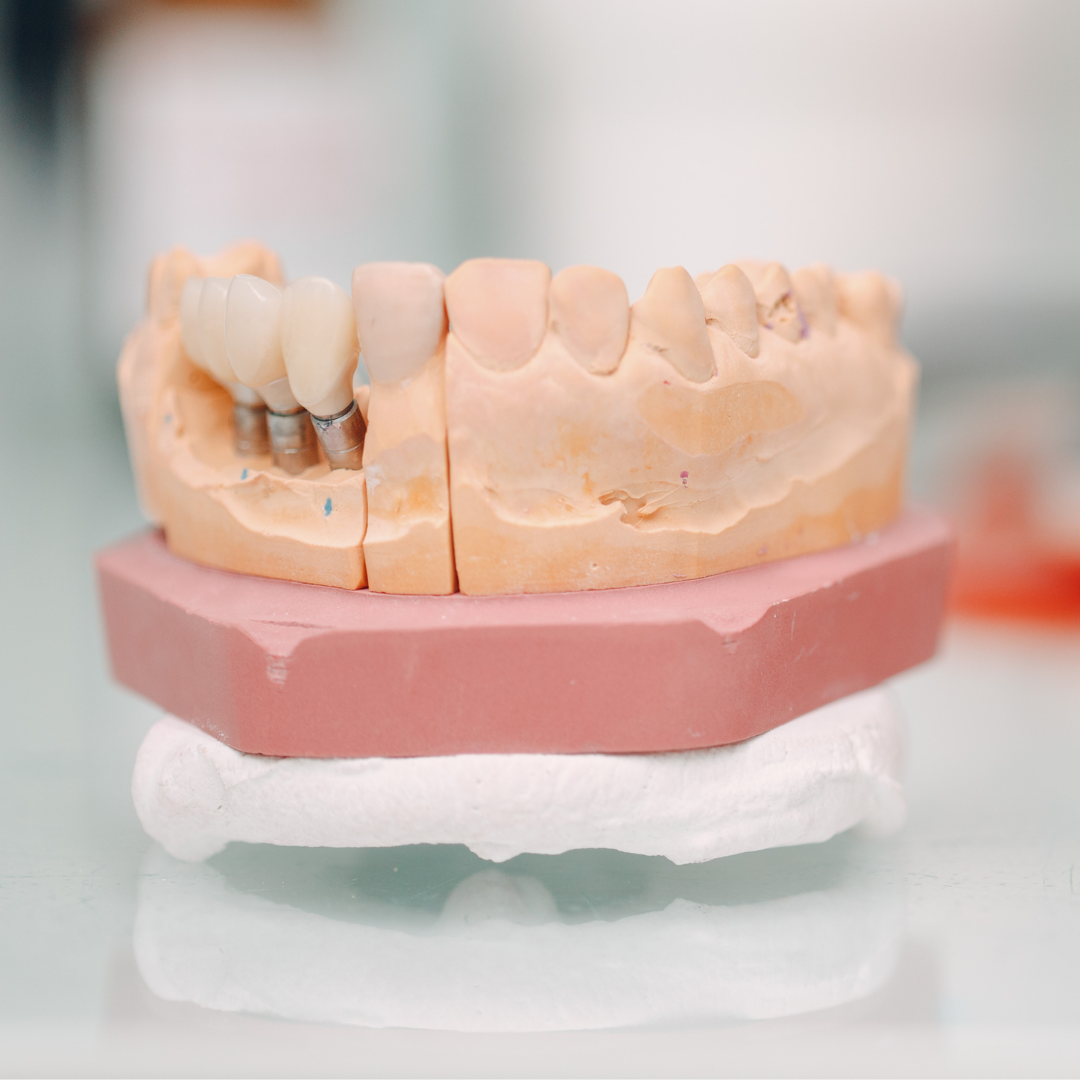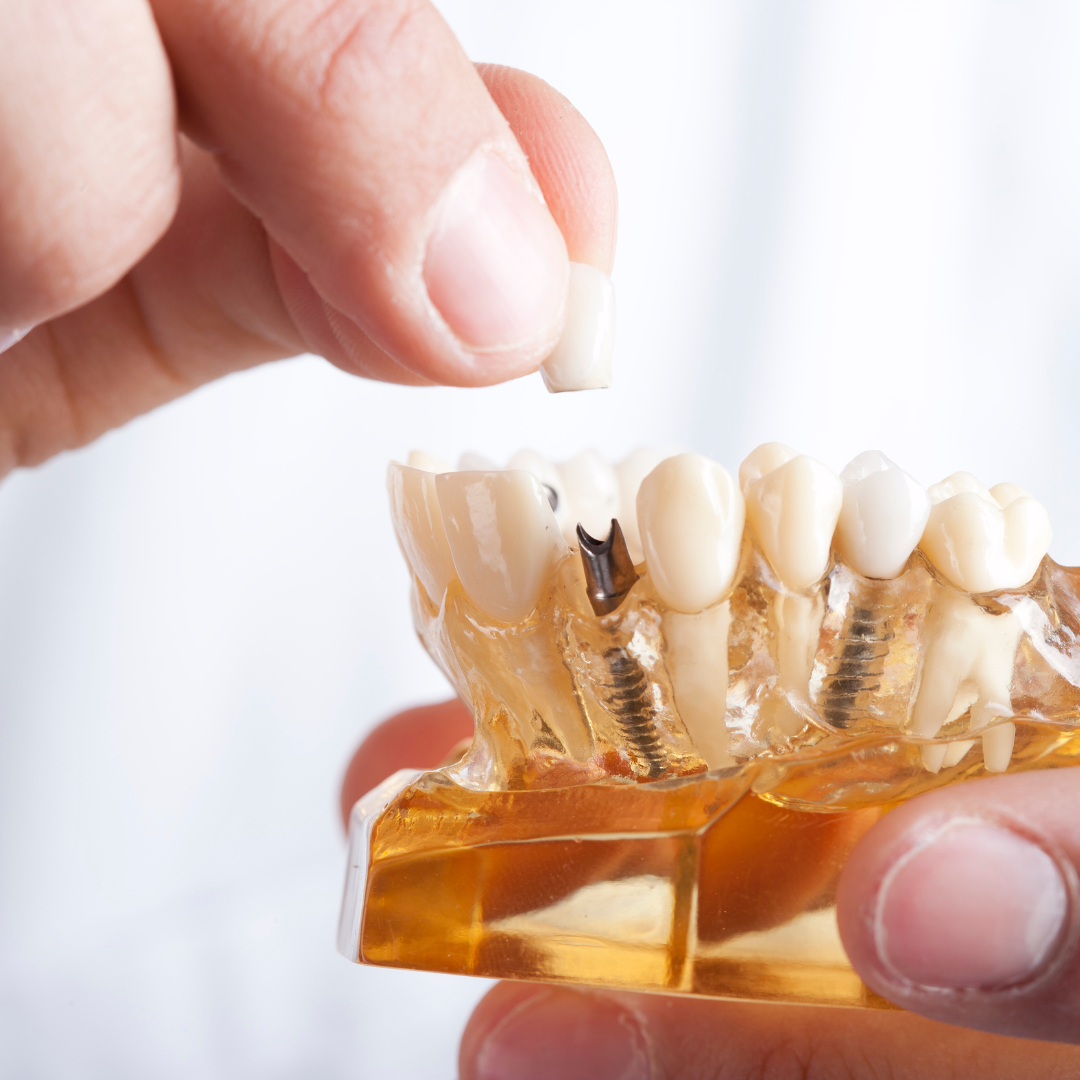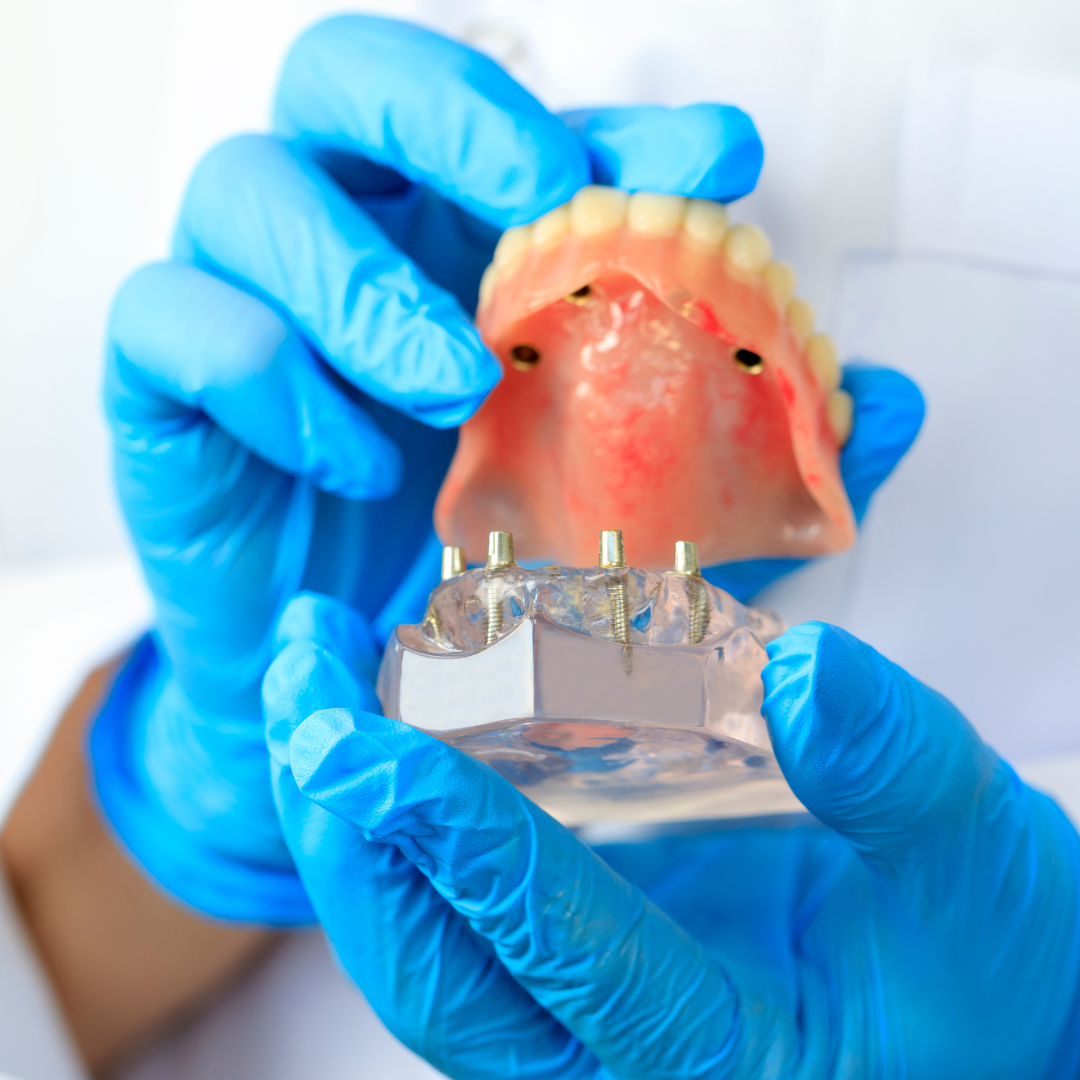Dental Implants, Restoring Confidence
At Moira Dental Care we have been placing implants for over 15 years, with a great success rate.
We believe in using the highest grade implant materials, ensuring you get the best possible results with long lasting benefits.
Initial Implant Consultation FREE*
Implant Assessment & Report £160
Implant Surgery including Crown from £2600
*£80 deposit required to hold initial appointment, refundable if treatment is not suitable or will be taken off assessment cost if treatment is pursued.
What is a dental implant?
A dental implant is a replacement tooth root made from titanium, inserted into the socket where a tooth is missing.
After placing the implant, we allow the bone to heal around it and as the bone heals, it grows around the implant, anchoring it securely in the mouth with the strength of a natural tooth.
We can then carefully craft a new crown (if a single tooth is being replaced), bridge (if multiple teeth are being replaced in one area) or denture (if multiple teeth are being replaced in one arch but separate areas) on top of the implant/s which are usually indistinguishable from your natural teeth.
Dental implants are a simple, secure and permanent solution to replacing missing teeth.
Why choose a dental implant?
If you lose a tooth it can affect you in many ways - it can affect our confidence, how we eat, how we speak, sometimes how we smile! The less visible affects are that it leaves our teeth with less support, sometimes causing problems for other teeth in years to come and without the tooth in place the bone around the missing tooth can start to shrink, causing your face to sink and making you appear older than you are.
A dental implant can replace your missing tooth and feel very secure. With advances in dentistry, we can now provide you with a replacement tooth without damaging adjacent teeth or have to have your teeth filed down for a bridge, live with a gap or wear a denture.
Have more questions?
Contact us
Ready to book?
Use the button below to book in for a face-to-face consultation with Dr Lorraine Laird to get a personalised quote for your implant treatment and to answer any questions you may have!



